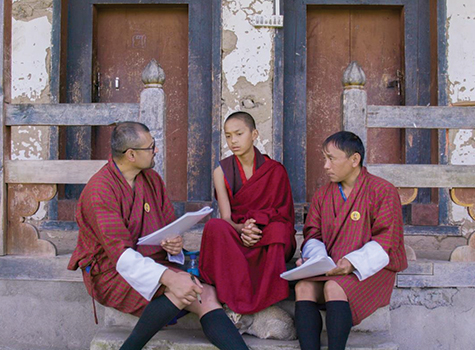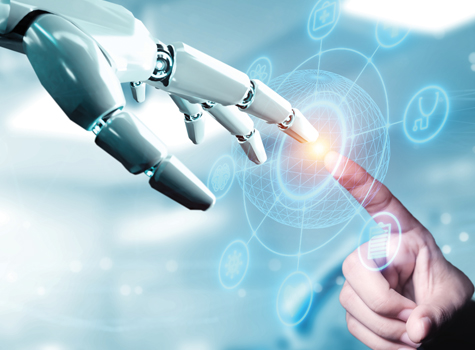The biggest turnoff for American voters is the degradation of the dialogue in American politics that has occurred over the past couple of decades. I won’t point fingers but, yes, there are specific people and a specific election cycle I can write about that are the prime suspects of this degradation in my opinion but will save that for later.
Let’s instead talk about simple solutions to this contemporary madness, the grip of partisan, unyielding politicians choking political processes and policy making. The fringe politicians and their operatives have devolved the old “debate, compromise and get things done” way of conducting the country’s political business into “our way or the highway” nonsense where nothing seems to get done in Washington D.C., as well as many state legislatures.
There’s no simple fix to bring efficacy and compromise back into the system. It will take years to break the gridlocks, but there is something the common man can do to bring about change. There’s an action that will ring loud if done by enough people. It’s time to dump the two political parties. By that I mean change your political affiliation from Democrat or Republican to Unaffiliated. Don’t bother with the several other smaller political parties because they are irrelevant.
This idea may seem nonsensical, but hear me out. If the block of current unaffiliated voters around the country increases by 2-3 folds, the reverberations will be felt across the political spectrums. The coveted voters in every election are now the unaffiliated, the so-called independents. Politicians spend lots of money, time and effort to get the vote out of their own supporters, but most can’t get over the final hump without convincing the elusive unaffiliated voters to click their box on Election Day.
The more unaffiliated voters are out there, the harder the parties will have to work to gain their votes. Policy, not ideology, will have to be the driving force, even in the dreaded primaries. Every election will make it harder to segment voters into potential blocks of vote. With large numbers of scattered independents, it would become much more difficult to gauge where their voters are. That’s a good thing.
My home state North Carolina has a closed primary system. That means if you are registered as either a Democrat or Republican, you can only vote for that party’s primary candidates. As an unaffiliated voter, though, I can choose to vote in either primary. It’s one way to unravel the entrenched interests. If you feel there is an extreme candidate in either party running in the primaries, you can vote against that person in the primary, rather than being limited to choosing someone from your own party affiliation. That’s an advantage of being Unaffiliated, at least in North Carolina. Unhinging the status quo is a good thing in politics.
There are hardcore self-identifiers on both sides, so those minds cannot be changed. They will vote for their party’s candidates, but there is a whole batch of recent new citizens and digital generation (the 18-25 group), along with many disheartened long-time voters. The young new voters, especially, are versed in diversity. They are seeing the world with fresher eyes, accepting the inevitable global realigning of power, politics, and economies. They will take chances. They will look for nuance, expect policy. They can help make the batch of unaffiliated, independent voters grow. A substantial block of such voters has to be persuaded to vote either way, that’s the increased workload for politicians.
This doesn’t mean the independent voter is not partisan or without loyalty. It just means the onus is on the politician to explain their stand on issues and policies, rather than kowtow to some ideological purity. Both progressives and conservatives have valid ideas in their ideologies and policy making. The two dominant parties are not going away anytime soon. This effort to rattle them is one way to bring the conversations back to finding solutions that benefit most people while cooling down the bogus purity spewed by uber-partisans.
Independence in the political arena is power. A third viable party is not going to happen anytime in the near future. Libertarians, the most-likely viable third party, have been trying and knocking on the door to get in on the action. But they are not going to convince enough people in the foreseeable future to win a substantial block of seats in Congress, let alone the presidency. Who needs a third party anyway? Why not unravel the current two parties instead? Hold them up to the fire for clarity and effectiveness. Creating a huge and elusive unaffiliated bunch of voters is the way to fix the current American political discourse. Politicians can spew ideological purity all they want, they still have to get elected to implement policy and laws.
An argument against my idea is that there is scholarly research that says increasing political independence hurts democracy. Well, there’s also scholarly research that says increasing independent voters will help democracy. You choose your research. I say, action speaks louder. The political process isn’t going to get nicer and more effective on its own.
Drop your affiliation and register to vote if you haven’t. Then, for the love of evolution, get out and vote. You may think your vote doesn’t count, but remember the 2000 election. If a just few hundred more people had voted for George W. Bush in Florida, he would have received a clean victory. If a few hundred more people had voted instead for Al Gore in Florida, the American story today would likely be quite different.
Fly your own flag. Make an effort to engage and vote.
In the meantime, it’s off to the debates.
Drowning in debates
Ok, so 2 of the 9 scheduled Presidential debates on the Republican side are in the can. There are so many candidates vying for the Republican ticket, that so far dual debates have been required to handle all of them. The lower-polling candidates wound up in the earlier in the day debate, while the top ten wound up on the prime time debates. The crowd is beginning to thin. One time frontrunner Scott Walker dropped from the race in late September. By the time the next debate rolls around in late October, a couple more of the lowest polling candidates are likely to drop off.
The Democrats kick off their first of 6 planned debates on Tues, October 13 on CNN. There is pressure to mount more debates, but the Democratic National Committee is so far holding to its 6 debate limit.
Don’t get weary yet. These are of course just the battles for the nomination, and then the real war begins for the presidency. Once both parties shuffle through their lot of candidates, the two candidates left standing will take up the podiums for their respective parties and the massive, very expensive fight for the big job kicks off, with both parties accelerating the race with their respective national conventions next July.
My hope is that an independent candidate will raise enough money and poll high enough to rev up the race enough to get invited to the final debates next summer and fall leading to the general elections in November. An interesting third candidate would make the other two eventual nominees work harder to maintain their own voters while gain the undecided voters’ trust to get their votes. It would be a good thing for American democracy.
Upcoming debates:
Democrats:
Tues, Oct 13 on CNN in Nevada
Wed, Nov 14 on CBS in Iowa
Sat, Dec 19 on ABC in Manchester, New Hampshire
Sun, Jan 17 on NBC in Charleston, SC
Two more unscheduled debates: Either February or March, one on Univision in Miami and another by PBS in Wisconsin.
Republicans:
Wed, Oct 28 on CNBC, Boulder Colorado
November 2015, Fox Business, Wisconsin
December 2015, CNN, Nevada
January 2016, Fox News, Iowa
February 2016, ABC News, New Hampshire
February 2016, CBS News, South Carolina
February 2016, NBC News, Florida
Three more are pending: Fox News, March 2016, location TBD; CNN, March 2016, location TBD; Conservative Media Debate, date TBD, locations TBD



